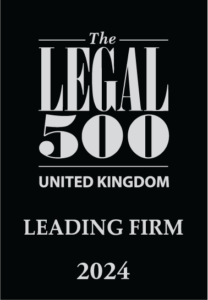As our world evolves, the ability of an individual to live, work or invest abroad becomes easier. With families becoming more internationally diverse, the result is that an increasing amount of individuals own assets in more than one jurisdiction.
Our firm is home to a dedicated team of international probate solicitors that specialise exclusively in international estate cases. If you are an executor, administrator or beneficiary responsible for dealing with foreign assets, our international estate lawyers are here to help you to navigate the foreign legal requirements.
Why would an estate require a grant of probate from another country?
The authority granted to an executor, administrator or beneficiary in one country may not automatically be recognised in another country. For example, if a grant of probate (or the equivalent) has been issued outside of the UK, this authority may not be enough on its own to deal with bank accounts, investments or land situated in the UK. Before the UK assets can be administered, the foreign grant may need to be “resealed” or formally recognised by a probate registry in the UK.
Where an estate has assets in multiple jurisdictions, a number of different court authorities or notarial declarations may be required to attend to the administration of those assets.
How can our international estate solicitors assist with this?
Our international estate lawyers have specialised in this area for decades and we are proud to offer a wealth of expertise and contacts.
When attending to foreign assets, you may find that you have to comply with complicated foreign laws and taxes, and there may also be a language barrier. We are familiar with the requirements of foreign courts and asset companies throughout the majority of countries throughout the world. We are often able to attend to the administration of a foreign asset directly from our office.
For foreign domiciled estates, our Probate Solicitors frequently handle applications for probate in the UK and adjacent regions. Through our many years of attending to such applications, we have great relationships with our local probate registry and the courts in Jersey, Guernsey and the Isle of Man. We also regularly assist with administering shares, bank accounts and investment funds located in the USA and Canada.
Through our MSI Global Alliance membership, our Probate Solicitors have access to an extensive global network of legal and financial professionals., which help us to provide fast and dependable advice.
How much does an international estate administration cost?
Our probate solicitors deal with international estates that come in all different shapes and sizes, for example, they can range from administering a small foreign bank account to an individual leaving a number of properties situated all over the world; with a number of different estate taxes to pay.
As our cases rarely contain the same facts, it can be difficult to quote purely based on the value of the assets. For this reason, our fees are based on time and the complexity of the estate. For example, at the start of each case, we consider the range of assets, the jurisdictions involved and whether UK inheritance tax or other foreign estate tax is payable.
Where possible, we offer a fixed fee. If you would like to obtain a quote, please email our international estate lawyers with the following key information:
- The country where the deceased has passed away;
- The type of foreign assets, for example, land, stocks and shares, investment funds or bank accounts;
- The country in which the assets are located;
- The approximate value of the assets, which will then provide us with an indication as to whether inheritance tax or a foreign estate tax may be applicable.



















